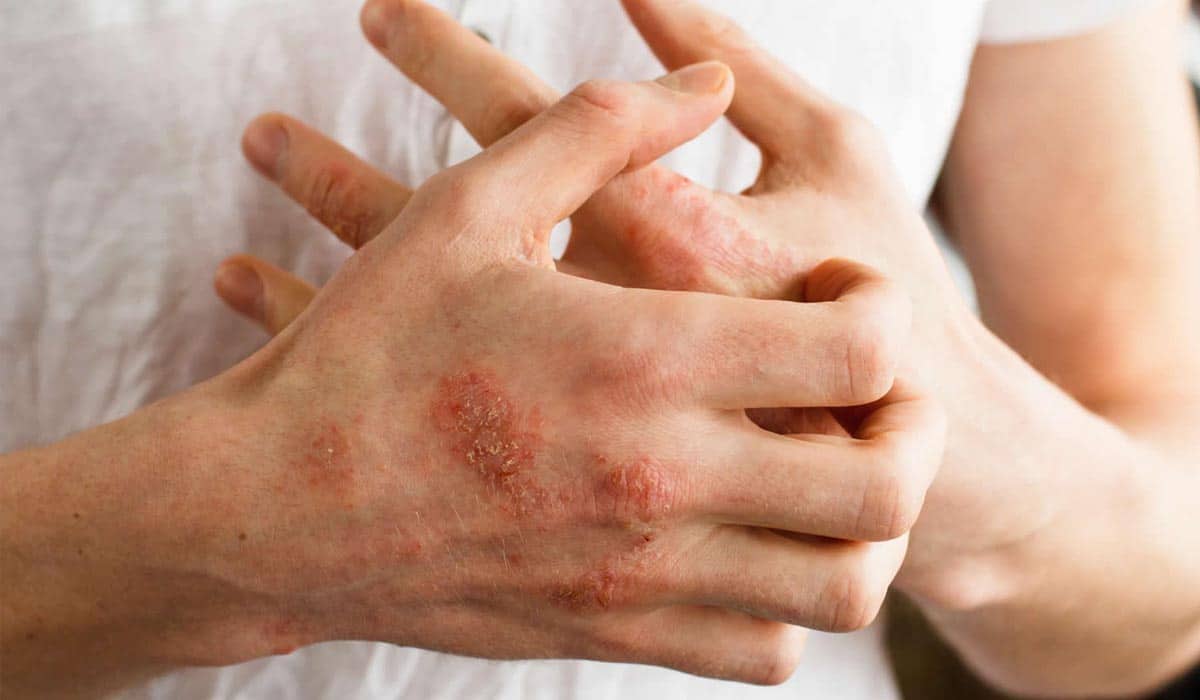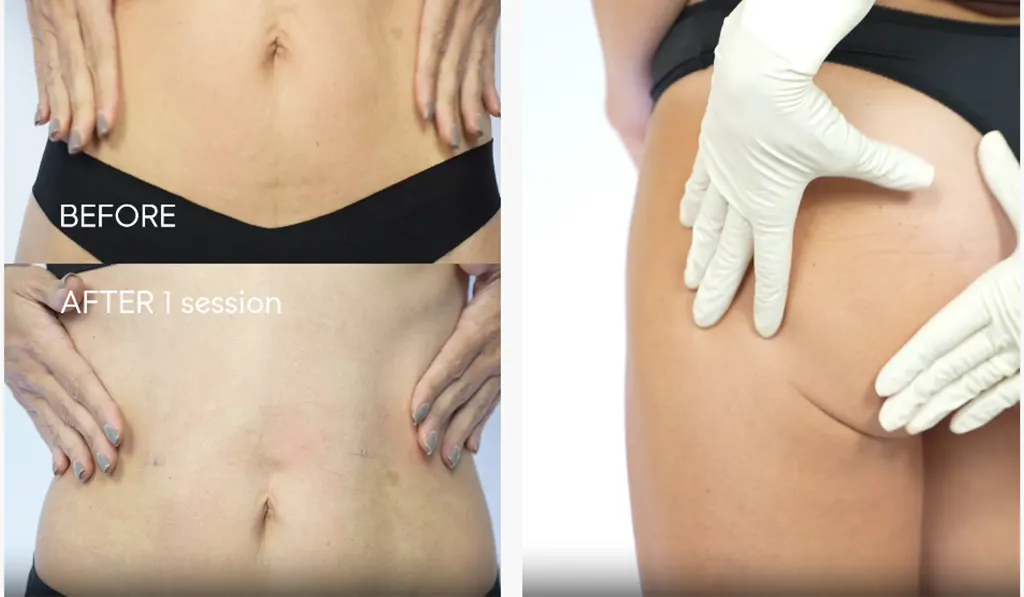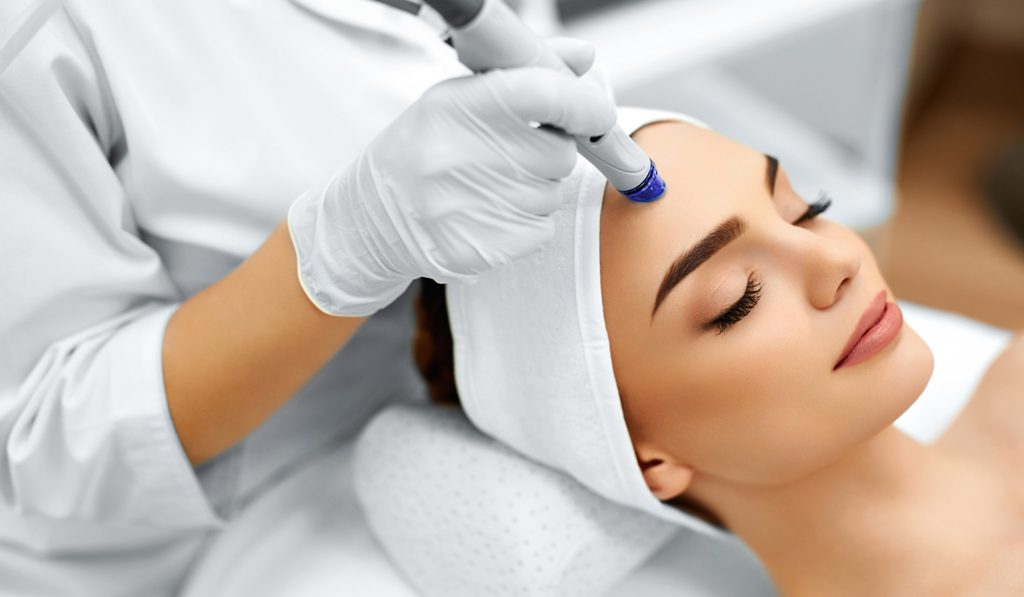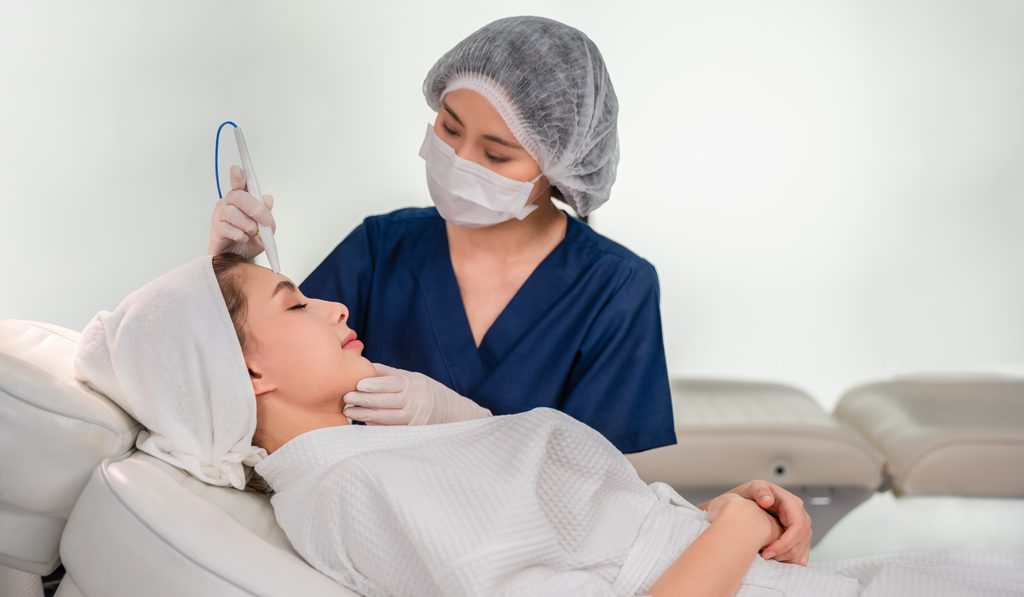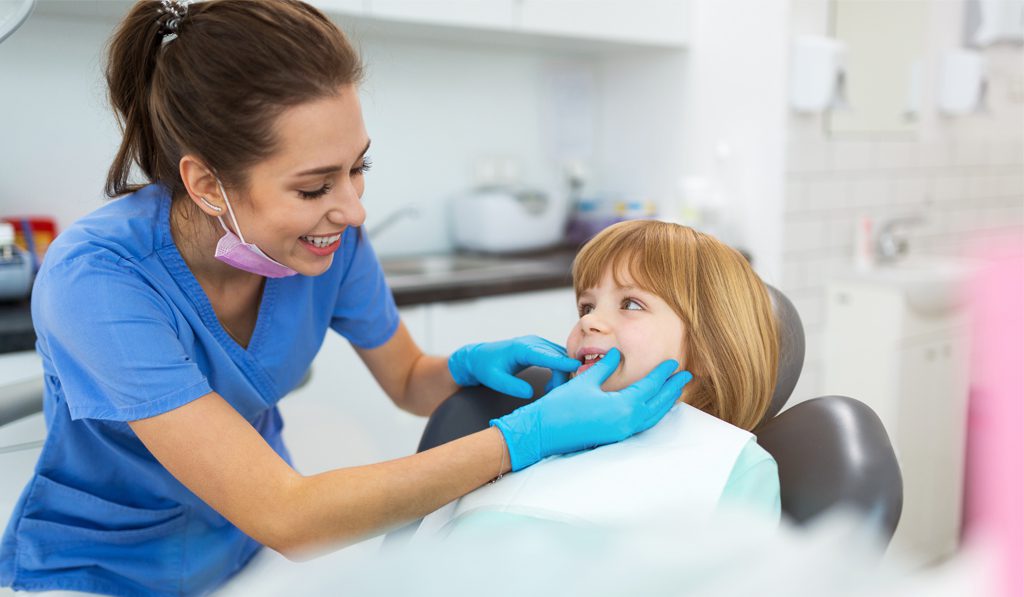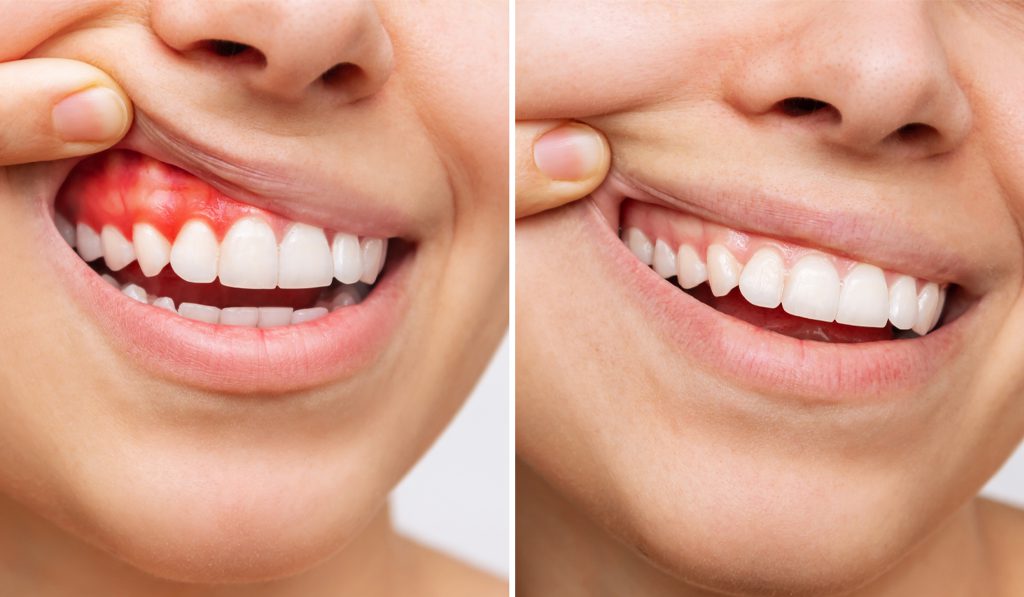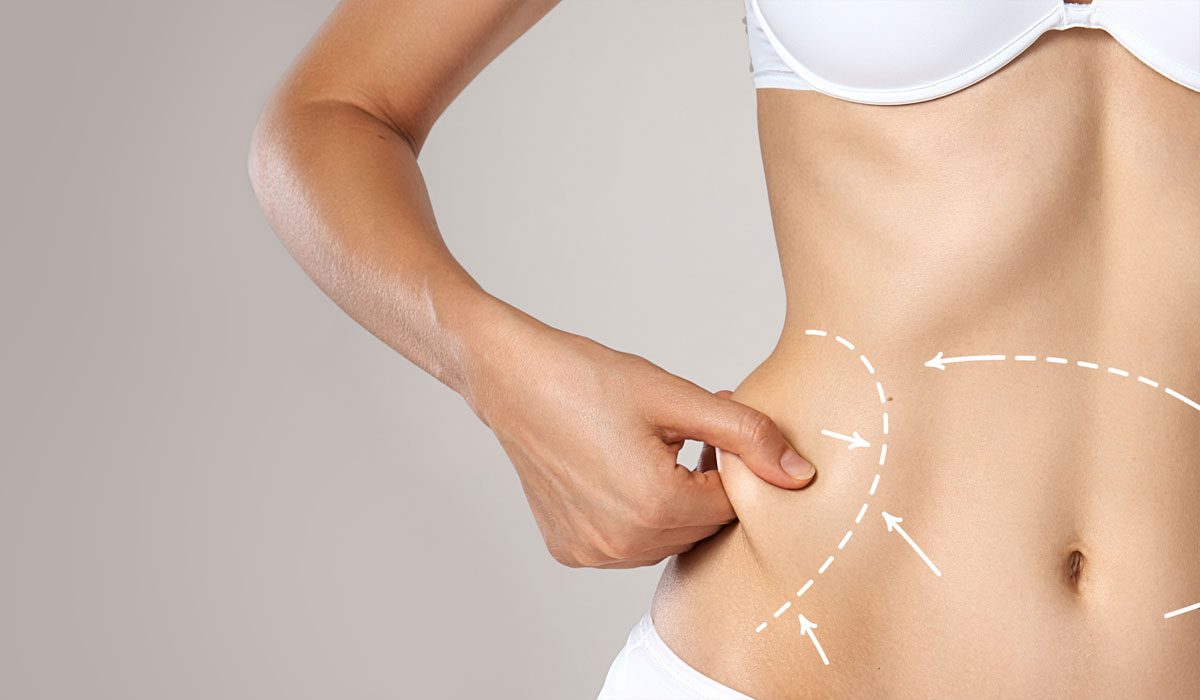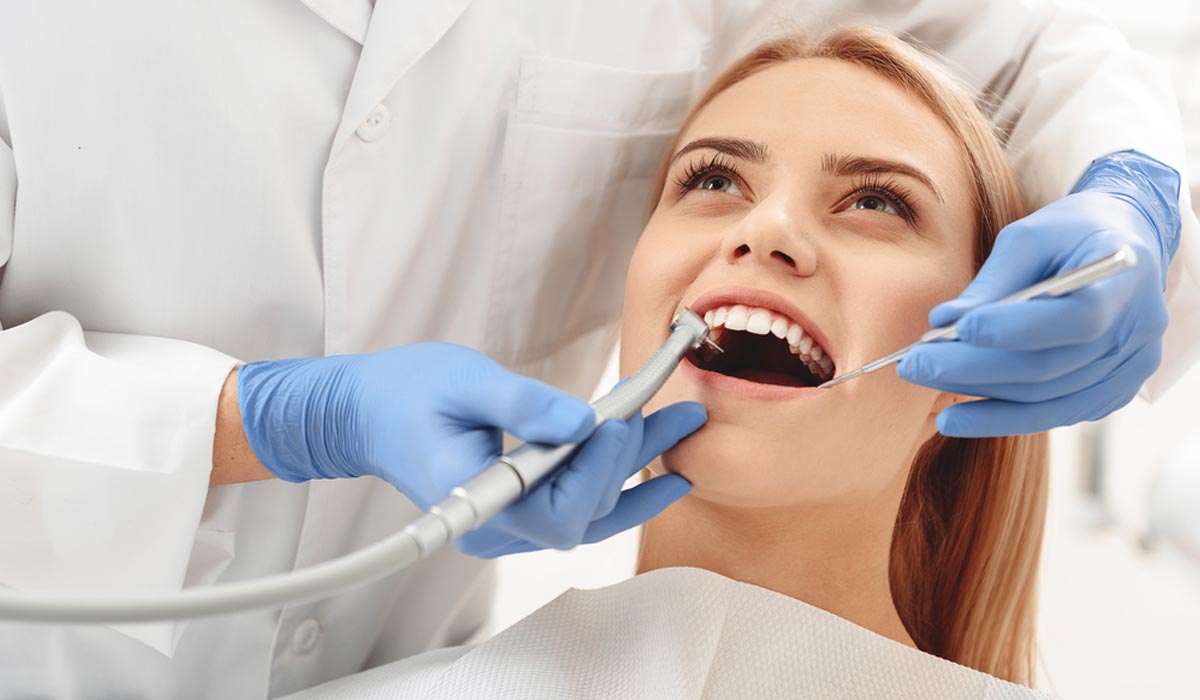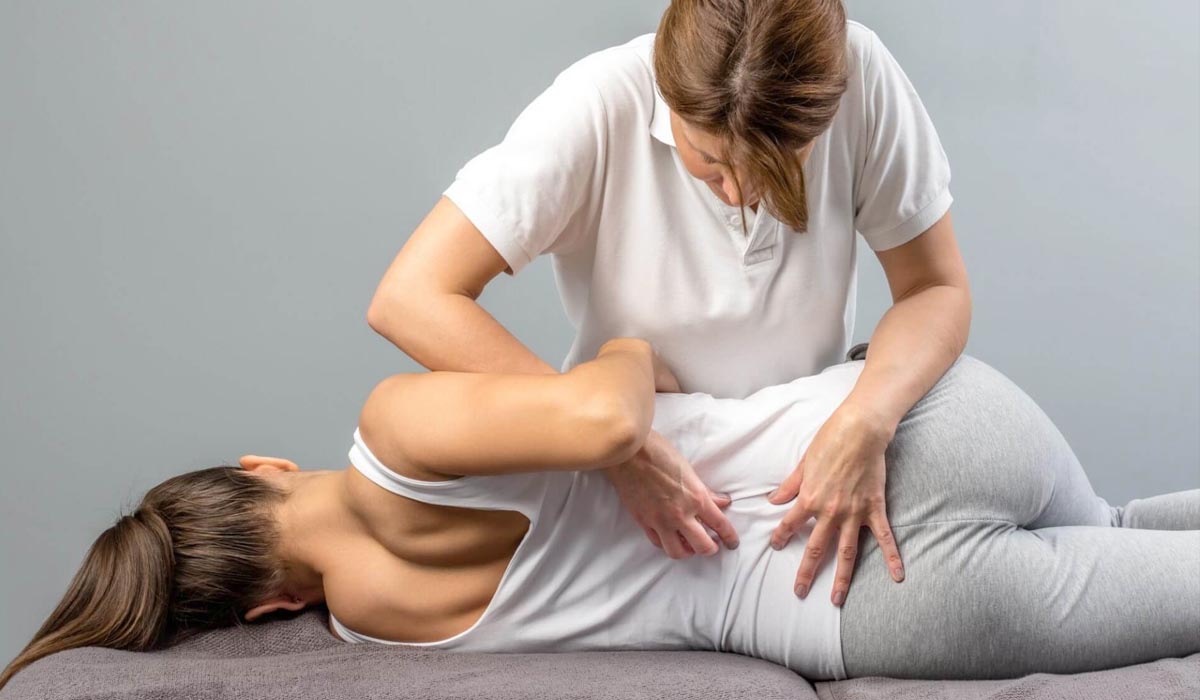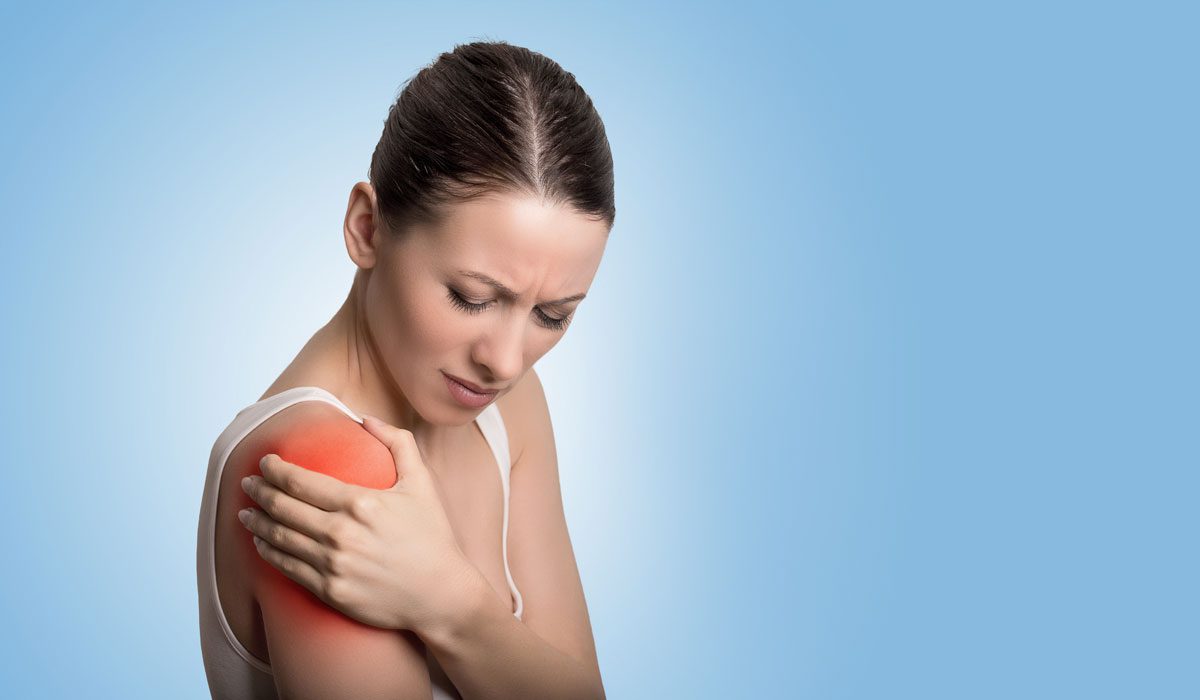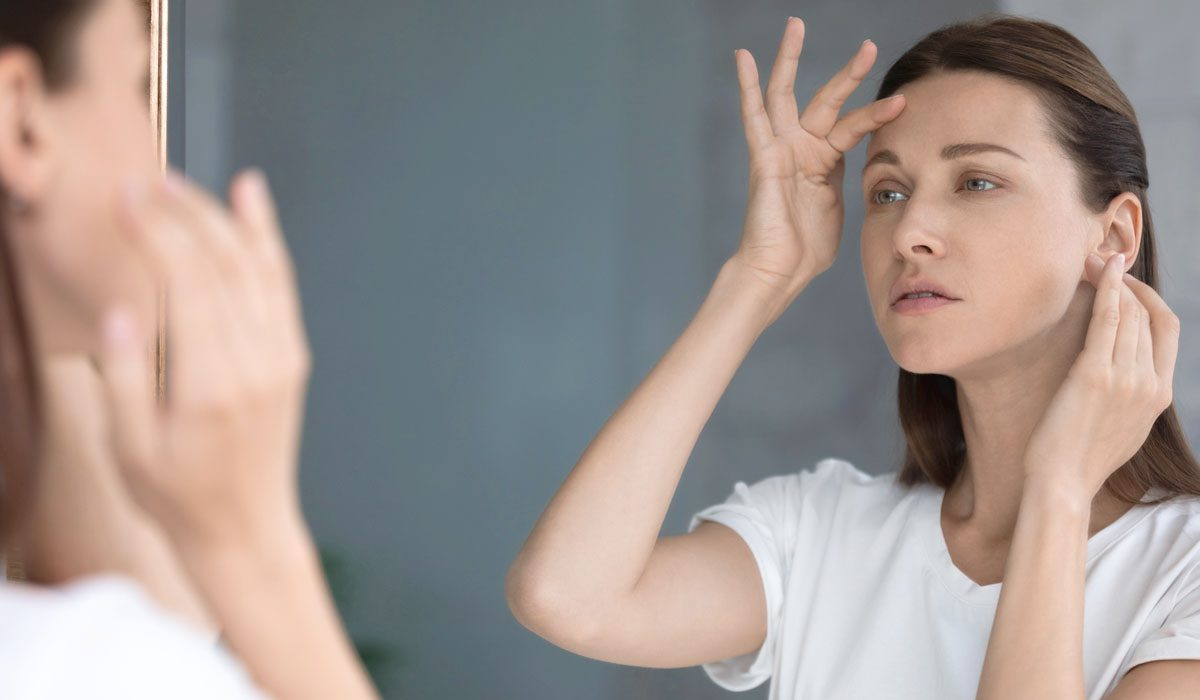Menopause Eczema: Causes and Treatments
Menopause is described as a permanent irreversible termination of the menstrual cycle in a woman. This is associated with a decrease in female reproductive hormones. Such hormonal variation results in a number of psychological, physical, and sexual changes in menopausal women. Related dermatological conditions can be categorized as age-related changes, physiological changes, and changes due to estrogen deficiency.
Physical symptoms include hot flushes and night sweats, bone and joint pain, tiredness, itchy skin, disturbed sleep or insomnia, breast tenderness, skin aging, etc. Psychological symptoms include memory loss, depression, irritability, poor concentration, mood swings, anxiety, loss of confidence, and many more.
A variety of factors, namely lifestyle and occupation, physical health, interpersonal relationships, and social status affects a woman’s attitude to menopause. This also affects her perception of the severity of menopausal symptoms.
Eczema during menopause
Menopause is not specifically connected to any skin disorders. But during the menopause year, you may be more vulnerable to some skin problems.
The hormone estrogen plays a vital role in your skin health. Once the development of estrogen slows down, your skin becomes thin and dry, particularly in sensitive areas such as your face.
Eczema is a skin condition where your skin becomes swollen, rough, itchy, and broken. It is a common condition during menopause, and in most cases, the condition is mild.
You may also develop acne and wrinkles. Some women may experience itchy skin. Medically, this condition is known as ‘Pruritus’. Pruritus may happen during perimenopause and continue for a short period after menopause. Perimenopause itchy skin and rashes are common symptoms which most women experience during this phase.
Menopausal skin problems
During menopause, the skin is greatly impaired due to the change in estrogen level. It can cause a range of skin problems like sweating, hot flashes, dryness, and itchiness. In medical terms, it is called ‘dermatitis’. Your skin generally appears dry, red, and swollen. You may feel itchy on any part of your body. But most often you may experience it on your face, neck, chest, and back.
Some women also develop acne, rashes, and wrinkles during menopause. In rare cases, you may feel numbness or tingle on your skin.
It is important to remember that menopause dermatitis is common and is only temporary. Most of the time it can be treated naturally and medical intervention is not required unless symptoms persist for too long.
Is itchy skin a symptom of menopause?
Your skin becomes itchy when it is irritated. This can be caused by a number of factors like skin disorders, food habits, allergies, and lifestyle. Itchy skin may not necessarily be a symptom of menopause. However, itchy skin may be caused by menopause, often affecting large parts of the body.
Does menopause cause itchy skin?
The estrogen level starts declining during menopause. This hormone is essential for healthy skin. It allows the skin to remain moist by accelerating the development of collagen and natural oils. Collagen is a kind of protein that retains the skin’s elasticity and strength. Decreased levels of collagen and natural oils may cause the skin to become thinner and drier than it was before menopause. This makes the skin feel itchy when a woman experiences menopause.
Types of itching during menopause
Every human body is different. The itchy feeling what one woman experiences might not be the same for the other. There may be variations in types of itching during menopause. Two prominent types are – skin itching and genital itching.
Skin itching
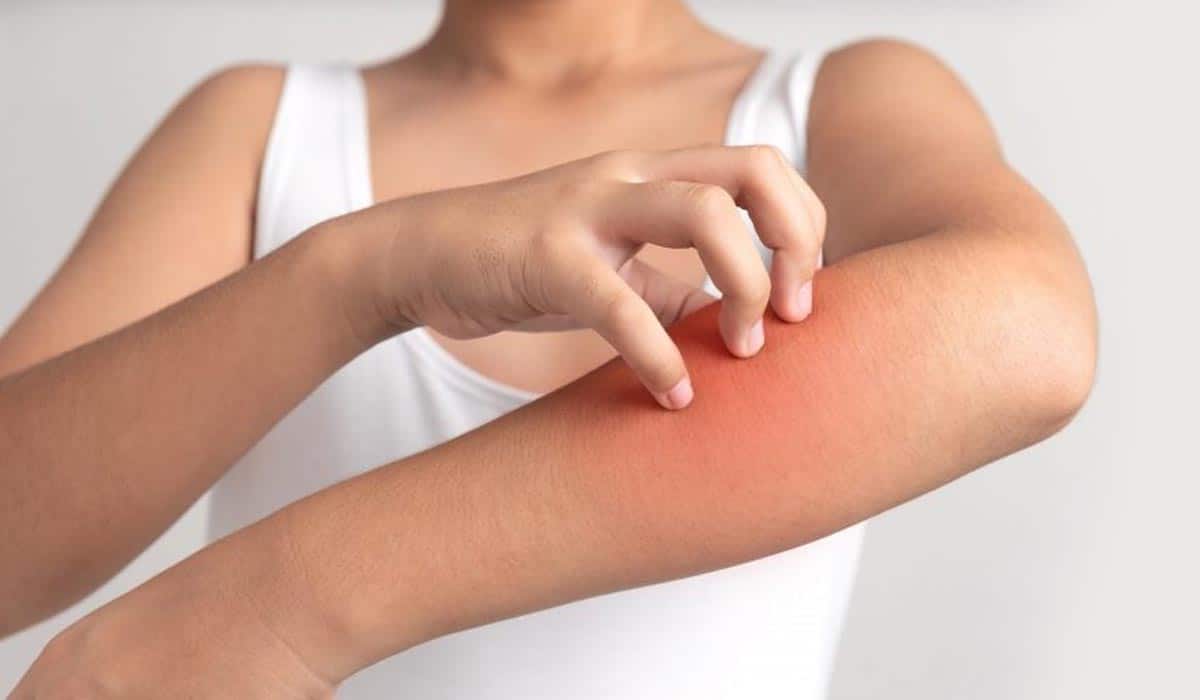 The skin becomes dry and less elastic during menopause. Due to this, a woman may become more susceptible to various products like soaps and detergents. This may irritate the skin and cause itchiness and inflammation. Some women may also experience prickling, tingling, or numbness of the skin. This condition is called ‘paresthesia’.
The skin becomes dry and less elastic during menopause. Due to this, a woman may become more susceptible to various products like soaps and detergents. This may irritate the skin and cause itchiness and inflammation. Some women may also experience prickling, tingling, or numbness of the skin. This condition is called ‘paresthesia’.
In exceptional cases, a woman may also experience a rare type of paresthesia. This condition is referred to as ‘formication’. Under this condition, you might have the sensation of insects crawling under your skin.
However, the symptoms may vary from mild to severe. If the symptoms lead to disruption in your daily life, you must visit a dermatologist.
Some other skin changes you may notice are:
- Skin rash
- Dry skin
- Small bumps on the skin surface
- Reddening of skin
Genital itching
Women may experience vaginal irritation more frequently during menopause. This form of itching may occur more repeatedly if a woman also has vaginal dryness.
Vaginal problems may arise or worsen due to reduced levels of estrogen. This may happen during or after menopause. The tissues of the vagina become more dry and thin than normal. When this condition occurs, it makes the vagina feel sore and itchy. This condition is known as ‘vaginal atrophy’.
Various factors that may lead to vaginal itching are inflammation, vaginal cancers, or irritation from detergents or soaps.
Can Menopause cause a rash?
Lack of estrogen can make your skin itch or make it more vulnerable than usual. This increase in sensitivity makes you more likely to develop a rash. This often happens when you are prone to harmful substances such as perfumes, dyes, or itchy fabrics. Reduced estrogen also prevents the skin from healing as easily as it did before.
It is not necessary that you will develop a skin rash during menopause. However, it is normal for you to experience skin reddening and irritation. This is typically short-lived and will stop once a hot flash disappears.
Home remedies for itchy skin

You may often avoid or treat irritated and itchy skin by making a few changes in your diet and lifestyle. You may also implement a new skincare routine that suits you the best. Some of the common home remedies to prevent and treat itchy skin are:
Treat with a cool compress – You can apply a cold, wet compress to itchy areas to soothe irritation. Covering the area with a damp towel overnight might be helpful, especially in the cases where scratching tends to disturb your sleep.
Moisturize – Moisturize the skin regularly, especially after a bath or shower. This may help to retain the moisture in the outermost layer of your skin, resulting in reduced dryness and itching.
Try to use a fragrance-free moisturizer appropriate for sensitive and dry skin. Scented products contain harmful chemicals that might further irritate your tissues. Some of the natural moisturizers, such as coconut oil or aloe vera gel also have skin calming properties.
Avoid scratching – Even though it is tempting, avoid scratching the surface. This can damage or tear the tissue, especially if you have sensitive skin. If you have itchy skin at night during menopause, wear gloves while sleeping to prevent a scar from scratching.
Stay hydrated – Water is important to keep the skin healthy. It also prevents dull and irritable skin.
Avoid hot showers – Hot baths may remove the essential oils from your tissues. Try using lukewarm water to retain the moisture.
Consume vitamin C rich food – Vitamin C plays a significant role in the production of collagen in the skin. It helps to heal tissue damage and also prevents dry, itchy, and thin skin. Increase the intake of vitamin C in your diet. You can also take oral supplements.
Some foods rich in vitamin C are citrus fruits, bell peppers, tomatoes, papayas, and broccoli.
Oatmeal Bath – Oatmeal bath is an effective remedy to treat various skin conditions. Oatmeal is made by crushing oats to a fine powder. It is used as a crucial ingredient in a number of chemical-free baths and skincare products. It helps to ease itching. It also can prove to be soothing, moisturizing, and inflammation-relieving.
Choose what you wear – Your clothes can have a severe impact on your irritated skin. It can either soothe your already sensitive skin or make it worse. Wool and synthetic fibers can aggravate even the toughest skins. Try to wear cotton, soft, smooth, and loose-fitting clothes. Such fabrics are soft and breathable and are easy on your body.
Exercise–Stress does not cause skin condition, but it may provoke certain symptoms. Regular exercise, deep breathing, and meditation are the keys to deal with stressful situations. The capability to reduce the stress levels may help to control your eczema.
When to see a doctor?
If your symptoms persist even after trying home remedies, you must schedule an appointment with your doctor or visit a clinic for medical assistance. In such cases, prescription medications may be vital.
Some over-the-counter (OTC) medicines are also available to treat such symptoms. This includes steroid and anesthetic creams, which might provide temporary relief. However, it is best to consult a doctor before starting self-treatment.
You must immediately consult a doctor if you develop a fever along with a rash, or if your rash spreads quickly to other parts of your body.
Bottom line
During menopause, hormonal variations often lead to unpleasant psychological, physical, and sexual changes. This might also have an adverse effect on the quality of life of a woman. Proper care and attention must be provided in case of severe symptoms, especially related to the skin condition, to treat it well in time.
A fall in estrogen levels during menopause leads to itchy skin. You can often treat this with some home remedies or over-the-counter medicines. In certain cases, prescription medication may be needed if symptoms persist for too long. These menopausal symptoms usually improve over time and are not uncommon.
References
https://www.healthline.com/health/menopause/menopause-itching
https://www.medicalnewstoday.com/articles/321526
https://www.healthline.com/health/menopause/menopause-itching
https://www.webmd.com/beauty/features/menopause-dry-skin-hormone-connection#1
https://www.aad.org/public/everyday-care/skin-care-secrets/anti-aging/skin-care-during-menopause

